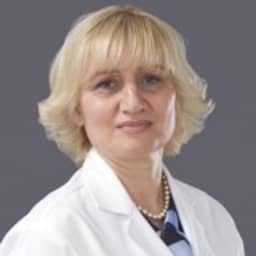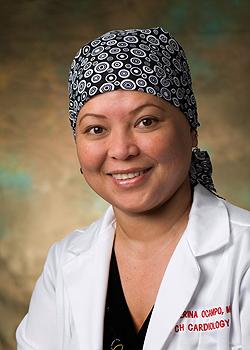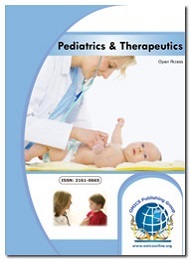Theme: "New Horizons in Pediatrics, Neonatal Medicine, and Family Medicine Research"
FANEOTRICS 2021
With a line-up of world-class speakers, FANEOTRICS 2021 ME Conferences is proud to announce its “30th World Neonatal, Pediatric and Family Medicine Conference," which is a Webinar and it is scheduled on December 06, 2021.


 The conference's main goal is to bring together all of the world's leading researchers, students, pediatricians, neonatologists, family medicine specialists, professors, associate professors, young research forum members, and delegates to attend the upcoming faneotrics conference and contribute to future innovations in the field of faneotrics.
The conference's main goal is to bring together all of the world's leading researchers, students, pediatricians, neonatologists, family medicine specialists, professors, associate professors, young research forum members, and delegates to attend the upcoming faneotrics conference and contribute to future innovations in the field of faneotrics.
The Faneotrics 2021 conference will highlight the most recent and innovative developments in family medicine, pediatrics, and neonatal research. The theme of this year's international conference is "New Horizons in Pediatrics, Neonatal Medicine, and Family Medicine Research," which reflects the cutting-edge advances in faneotrics research.
Presenting a paper: The gathering Presenters will get the opportunity to present their research papers in front of a global audience of distinguished professionals from related fields, receiving both favourable and constructive feedback on their work. Also, interchange of ideas within the same topics of interest, which will go above and beyond for their future global collaborations..
Publication: Conference proceedings are always the greatest option to have your research publications published and indexed in highly indexed journals.
Networking for future collaborations: All event guests will get the opportunity to network with other current academicians and specialists, as well as exchange their perspectives on recent developments. The major goal of the conference is to enhance research interactions, which will be a collaborative learning experience where participants can improve their knowledge or skills in achieving institutional goals.
Added Research Value: Our organisation is giving the best platform for all attendees in their various fields, which will give immense research value to your professions. Our committee members are planning the event in such a way that it will allow open access to various research efforts in the appropriate topic areas, as well as current trends and challenges that will be addressed, and our event will be accredited with an e-certificate that will be beneficial.
WHO SHOULD ATTEND?
- Pediatricians
- Health Practitioners
- Neonatologists
- Primary Care doctors
- Nurses
- Students
- Research scholar
- Family physicians
- Physician assistants
- Midwives
- Pediatric Gastroenterologists
- Research Institutes
- Training institutes
- Pharmaceutical companies engaged in manufacturing, development and commercialization of drugs and surgical equipment’s.
- Educational Institutes
- Associations and Societies
- Hospital Administrators
Track 1: Family Medicine
Family medicine (FM), formerly known as family practise (FP), is a medical speciality that focuses on providing comprehensive health care to patients of all ages. They are patient's first point of contact for health issues. Family physicians or family doctors are the terms used to describe the specialists. Endoscopy, family planning, and early pregnancy evaluation are all procedures that family physicians are trained to conduct.
- Internal medicine
- Family physician
- Physiotherapy nurse
- Hospital management
- Hospice and palliative medicine
Track 2: General Pediatrics
The Division of General Pediatrics focuses on providing excellent clinical care to patients from all socioeconomic backgrounds and with all degrees of medical complexity, as well as conducting cutting-edge health services research and developing future academic leaders in general pediatrics. Now-a-days the goal of comprehensive primary care is to keep the child healthy.
- Nutrition counselling
- Immunizations
- Clinical pediatrics
- Nutrition counselling
- Health screening and disease prevention
- Adolescent medicine
- Child psychology
Track 3: Pediatric Oncology
The Pediatric Oncology Branch is dedicated to improving findings in order to improve outcomes for children with tumour propensity disorders. Pediatric oncology conferences are a component of a solution focused on the detection and treatment of disease in children and adolescents.Tyke tumor is estimated to have a global event of more than 175,000 for continuously, and a passage rate of roughly 96,000 for every year.Youth danger has a mortality rate of about 20% in developed countries. Pediatric hematologists/oncologists diagnose, treat, and manage the following conditions in children and teenagers:
- Leukemias, lymphomas, brain tumours, bone tumours, and solid tumours are all cancers.
- White blood cell, red blood cell, and platelet abnormalities are all examples of blood cell diseases.
- Disorders of bruising and clotting
Track 4: Pediatric Dentistry
Pediatric dentists are oral health professionals who specialise in caring for new-born’s and children with particular health requirements. A pediatric dentist can provide a variety of treatment options as well as the experience and training necessary to care for a child's teeth, gums, and mouth. Children who do not receive sufficient oral care risk developing tooth decay and illness, which can lead to a lifetime of pain and discomfort.
- Orthodontics
- Dental traumatology
- Dental implantology
- Holistic dentistry
- Oral cancer
- Dental surgery
Track 5: Pediatric Cardiology
Pediatric cardiology is the science of diagnosing and treating cardiac/heart disorders in children. Pediatric cardiologists are cardiologists that specialise in treating children and infants. New research fields, such as heart problems in new-born’s, are encouraged during Pediatric Cardiology Conferences. Embryology and anatomy, physiology and pharmacology, biochemistry, pathology, genetics, radiography, clinical issues, investigative cardiology, electrophysiology and echocardiography, and cardiac surgery are all topics covered in children and adolescents. Academics, clinicians, healthcare executives, and policymakers are invited to attend the Conferences. Pediatric cardiology diagnose, treat, and manage the heart problems in children including
- Congenital heart disease
- Arrhythmias
Track 6: Neonatal Care
Neonatal care is a nursing specialism that deals with children who are born with a range of issues such as prematurity, birth deformities, infection, heart anomalies, surgical issues, and so on. The majority of neonatal nurses look after new-borns from the moment they are born until they are discharged from the hospital. Neonatal practitioners have the most demanding responsibilities, working in the NICU with ventilators and incubators, monitoring babies' responses, and teaching parents how to properly care for their infants.
- Neonatal respiratory diseases
- Preventive care
- Neonatal disorders
- Chronic management
- Epilepsy in neonates
- Diagnosis & treatment
Track 7: Women Health Nursing and Midwifery
Women's health is a specialty of medicine that focuses on the treatment and diagnosis of diseases and ailments that affect a woman's physical and mental health. Gynaecology is one of the most important fields of medicine that deals with women's health issues. Prenatal and birthing treatments include a healthy diet, prenatal vitamins, and medications, among other things. Midwifery is concerned with the care of women throughout pregnancy, labour, and the postpartum period, as well as the care of the new-born. The main goal is to prevent health problems during pregnancy, recognise abnormal circumstances, obtain medical treatment when necessary, and take appropriate steps if medical help is not available.
Track 8: Pediatric and Neonatal Cardiology
Pediatric cardiologists specialise in the diagnosis and treatment of congenital cardiac disease, arrhythmias, and pulmonary hypertension in children. Pediatric cardiologists collaborate closely with pediatric cardiac surgeons to determine the best therapies and strategies for children who may require heart surgery.
- Pediatric pulmonary hypertension
- Heart function in very sick new-borns
- Electrophysiology
- Fetal cardiology
- Heart rhythm
- Cardiac malformations
Track 9: Pediatric Nutrition
Nutrition is critical for optimal health. Infants eat small amounts of food at a time, and this period requires a great deal of attention. Pediatric nutrition is the most important intrauterine environmental element that affects foetal genome expression and can lead to developmental abnormalities later in life. Healthy protein-based foods, such as meat, nuts, and eggs, should be offered to the child at all times. Whole-grain breads and cereals are high in fibre and should be served.
- Physical growth and maturation
- Essential vitamins and minerals
- Gastrointestinal disorders
- Pediatric development
- Eating disorders
- Weight management
Track 10: Pediatric Nursing
Pediatric nursing is the medical care provided to children from birth to adolescence in a hospital or clinic setting. Pediatric nurses frequently collaborate with other health professionals to offer the best medical care for children. They play a crucial role in monitoring young patients' health and providing care and support during their therapy. The current trends in the practice are based on research that have taken place in the field of pediatric nursing. The common trends are following
- Family centred care
- High technology care
- Evidence based practise
- Atraumatic care
- Cost containment
- Prevention and health promotion
Track 11: Pediatric Psychology
Pediatric psychology studies the psychological aspects of sickness in children and adolescents, as well as the development of healthy habits. In a developmental system, psychological difficulties are addressed, affirming the dynamic link that exists between children and their families.. Environmental factors and psychosocial development that contribute to the development of a disorder, outcomes of children with medical conditions, treating emotional and behavioural components of illness, and promoting proper developmental disabilities and health behaviours are some of the common areas of research. Pediatric psychologists operate in a number of contexts and have a variety of responsibilities, including
- Health promotion/prevention and early intervention programmes
- Assist individuals who are mentally retarded or have developmental impairments.
- Psychological counselling and training for doctors
- Public policy and public health.
Track 12: Clinical Pediatric
The focus of the conferences is on basic research in pediatrics and child health. Clinical Pediatrics focuses on clinical reports on diagnosis and other treatment aspects, as well as challenges such as ADHD, Alternative Medicine, Antibiotics, Bicycle Injuries, New Combination Vaccines, Childhood Obesity, Head Lice, Human Papilloma Virus (HPV) Vaccine, Managing Hypertension, and New Diabetes treatment. Pediatric Emergencies, Practice Management, Resident Education.Clinical pediatrics typically focuses on practice-oreiented challenges like
- Primary Care
- Pediatric Infections
- Sleep Disorders
Track 13: Pediatric Surgery
Pediatric surgery is a specialisation of general surgery that deals with patient diagnosis, treatment, and surgical care. Congenital abnormalities such as lymphangioma, cleft lip and palate, esophageal atresia and tracheoesophageal fistula, hypertrophic pyloric stenosis, and others may necessitate pediatric surgery. Pediatric cardiac surgery
- Pediatric neurosurgery
- Pediatric surgical devices
- Pediatric ophthalmic surgery
- Pediatric head & neck surgery
Track 14: Neonatal Neuromuscular Disorders Congenital Effects
Neuromuscular disorders include diseases of the muscle, neuromuscular junction, nerves (neuropathies), and anterior horn motor neurons (myasthenia gravis and congenital myasthenic syndromes) (spinal muscular atrophies). They exist as floppy newborn syndrome with or without contractures in the neonatal period.. Respiratory insufficiency and swallowing problems can be prominent in the clinical picture, and they're commonly linked to hypotonia and weakness.
Congenital abnormalities are caused by problems that occur throughout the foetus' development before to birth. To lower the chance of preventable congenital defects, parents must be healthy and get adequate medical care during pregnancy. Advances in perinatal testing and novel diagnostic procedures have enabled earlier detection of chromosomal and genetic origins of congenital defects.Symptoms of neuromuscular illness in children include
- Muscle tone is low (hypotonia)
- Motor milestones that are delayed, such as delayed walking or irregular gait
- Muscle weakness, atrophy, twitching, or rippling are all symptoms of muscle weakness
Track 15: Pediatric Gastroenterology
Pediatric medicine is the branch of medicine that deals with gastrointestinal illnesses and disorders. The following conditions are commonly treated by pediatric gastroenterologists
- Bleeding from the stomach or intestines
- Food intolerances or allergies
- Gastroesophageal reflux disease (GERD) that is severe or complex (reflux or GERD)
- Inflammatory bowel disease (IBD) is a kind of bowel illness that
- Irritable bowel syndrome (IBS) is a
- Hepatitis is a disease of the liver.
- Abdominal discomfort, acute or chronic
Track 16: Pediatric Pulmonology
Pediatric pulmonology is concerned with the diagnosis and treatment of disorders of the respiratory system in children. It's a mix of pulmonary medicine and pediatrics. Pediatric pulmonologists are experts in the treatment of respiratory diseases and disorders in children, such as asthma, pneumonia, TB, and complex chest infections. Pediatric Pulmonology includes Flexible Fiberoptic Bronchoscopy (FFB) and Pulmonary Function Testing. These tests are non-invasive and can be performed in a variety of methods to suit the needs of youngsters. Pulmonologists can use a fiberoptic scope to look inside the lungs with an FFB.
- Pulmonary fibrosis
- Emphysema
- Cystic fibrosis
- Recurring pneumonia
- Advances in respiratory medicine
- Sleep-related breathing problems
Track 17: Infectious Diseases
Infectious diseases in children are abnormalities produced by living things such as germs, pathogens, organisms, and parasites. In and on our bodies, there are numerous living beings. They're usually harmless or even pediatric infectious diseases: supportive, but a few life forms can cause infection under certain circumstances. Some diseases are contagious and can be spread from one person to the next. Infectious and immunologic disorders caused by bacteria, viruses, fungi, and parasites are treated by pediatric infectious diseases experts. For illnesses that are complex or unusual, other pediatric infectious diseases specialists are consulted for diseases that are complicated or atypical, including
- Illnesses with an unknown aetiology, a high fever, or a history of recurrence
- Infections of the lungs
- Hepatitis
- Meningitis
Track 18: Neonatal Intensive Care Unit
New-born babies who require intense medical care are frequently admitted to the neonatal intensive care unit of a hospital (NICU). The NICU is equipped with cutting-edge equipment and highly educated medical personnel to provide specialised treatment for the youngest infants. NICUs may also have spaces dedicated to babies who aren't as unwell but still require specialised nursing care. Because some hospitals lack the resources to staff a NICU, new-borns must be transferred to another facility. Babies in need of intensive care do better if they are delivered in a hospital with a NICU rather than being transferred after birth. The following are some of the factors that can put a baby at danger and raise the risks of being born prematurely admitted to the NICU.
- Drug or alcohol use
- Diabetes
- High blood pressure (hypertension)
- Bleeding
- Sexually transmitted diseases
- Multiple pregnancy (twins, triplets, or more)
- Too little or too much amniotic fluid
- Premature rupture of membranes (also called the amniotic sac or bag of waters)
Track 19: Neonatal Dermatology
Dermatology is the branch of medicine that deals with the diagnosis and treatment of skin, hair, and nail problems. Shortly after birth, babies might suffer a variety of skin disorders; these conditions usually last only a few days and then disappear. A Neonatal/pediatric dermatologist is a doctor that specialises in evaluating and treating infants with skin abnormalities, both benign and malignant.
- Blistering disorders
- Benign tumors and cysts
- Psoriasis & scabies
- Herpes and other viral skin infections
Get Global Networking Right at Your Front Door!
Video is King - Leverage the power of the narrative using video to make your presentations more engaging.
Why Virtual/Video Presentation?
A professionally produced video will keep your viewers focused and engaged with the entire material; it will communicate your narrative and elicit emotional responses from your audience. Your aims as a presenter are ideally aligned with video presentations: you want an engaged audience to think about and act on the information you're presenting.
Video, which uses sight and sound to draw the audience in, is a simple way to improve the audience experience. A brief presentation will offer them a better understanding of your goal or strategy, and everyone will benefit from working more effectively. With less, you'll be able to communicate more effectively.
Virtual/Video presentations are gaining popularity as a way to provide learners with genuine presentations, and video has been shown to be a growing presenting medium.
Currently, our 2000+ speakers use video presentations all around the world.
Video Presentation Opportunity:
One of the finest ways to communicate your findings on a worldwide scale is through a video presentation. Having video presented at the conference proceedings will undoubtedly help your study get internet awareness.
- No Appointment to be cancelled
- No Break from the regular schedule
Benefits of opting Video Presentation:
- Session Chair suggestions and comments will be communicated after the conference
- One of the scientific committee will represent the presentation on behalf of speaker
- Speaker video presentation will be officially recognized
- Record your presentation video and send us through @mail
- Duration of the video: 35 - 40 minutes
- Registration Fee: $199
Submission of an abstract along with a biography to the conference's programme manager or through the conference's direct online page. You will get an acknowledgement of approval from the appropriate Program Manager within 24 hours of submitting the abstract.
Simply record your presentation with a high-definition camera/phone and email it to the conference programme manager, who will deliver it at the conference venue under your name and make it available on the conference website among other presentations.
There are a lot of benefits! It was entertaining, informative, and kept the audience interested. They had a budget and had put money into their presentation, of course. They'll say it was well worth the cost in the end, and they'll utilise it for a variety of additional purposes.
In this respect, we are delighted to extend an invitation to all of you to present in the Video Presentation category at the “30th World Neonatal, Pediatric, and Family Medicine Conference” on September 20, 2021 via Webinar. Video presenters would obtain certification as well as external scientific affiliation with decision makers and leaders all around the world.
Join Speakers Video Presentation Club @Faneotrics 2021 .
Conference Highlights
- Family Medicine
- General Pediatrics
- Pediatric Oncology
- Women Health Nursing and Midwifery
- Pediatric Nutrition
- Pediatric Dentistry
- Pediatric Surgery
- Pediatric Pulmonology
- Pediatric and Neonatal Cardiology
- Pediatric Cardiology
- Neonatal Care
- Pediatric Nursing
- Pediatric Psychology
- Clinical Pediatric
- Neonatal Neuromuscular Disorders Congenital Effects
- Pediatric Gastroenterology
- Infectious Diseases
- Neonatal Intensive Care Unit
- Neonatal Dermatology
To share your views and research, please click here to register for the Conference.
To Collaborate Scientific Professionals around the World
| Conference Date | December 06-06, 2021 | ||
| Sponsors & Exhibitors |
|
||
| Speaker Opportunity Closed | |||
| Poster Opportunity Closed | Click Here to View | ||
Useful Links
Special Issues
All accepted abstracts will be published in respective Our International Journals.
Abstracts will be provided with Digital Object Identifier by



















